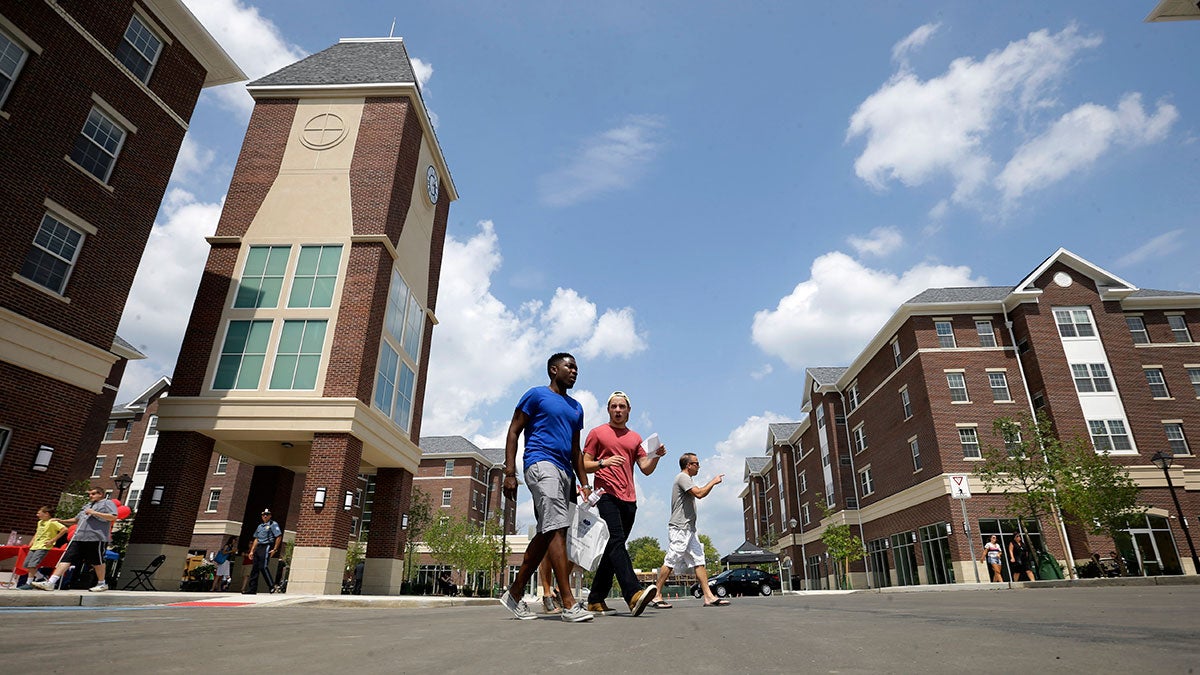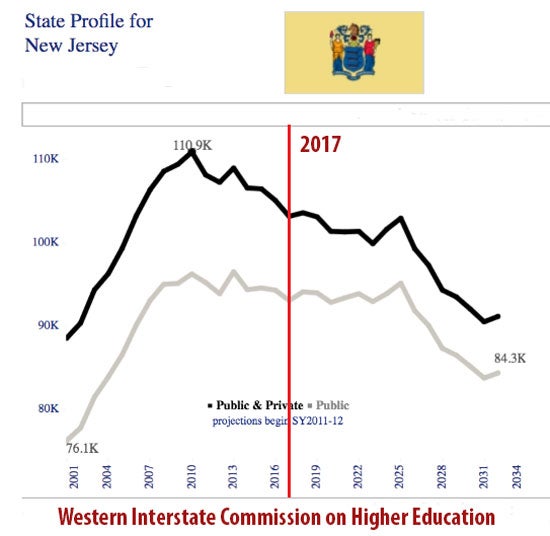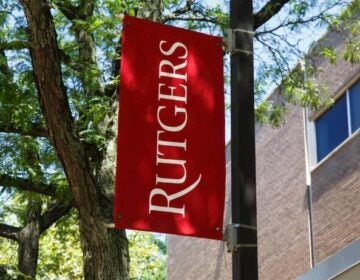New Jersey will soon have a shortage of college students

Many colleges like TCNJ are expanding their campuses. (AP Photo/Mel Evans, file)
New Jersey will experience about a 20 percent decline in the number of high school graduates through 2030, according to a recent report, “Knocking at the College Door,” by the Western Interstate Commission on Higher Education (WICHE.) That will mean a drop to 90,000 from a current high of about 111,000 graduates annually, and more of these students will be from lower- income families and less-prepared academically for college.
That has important economic consequences for colleges, students, businesses, and the state — which need to be considered, now.

Historically, 70 percent to 80 percent of New Jersey high school graduates enroll in college. Obviously, fewer students paying tuition places stress on colleges’ financial operations. This is especially true, because about 70 percent of public colleges’ revenue comes from student tuition and fees. Add to this increasing competition for New Jersey students from surrounding states, such as Pennsylvania, Ohio, and Massachusetts, which also face declining enrollments.
Pile on another dilemma in a no-growth environment: New Jersey already leads the nation as the number one net exporter of college-bound students. We lose about 30,000 students annually to other states. Regional competition for well-prepared New Jersey students who are able to pay for college will be at an all-time high. Not every university in the state can compete effectively for students in this environment.
The changing demographics will affect both college access and affordability. More institutions competing for fewer students would appear to be positive for college applicants. Colleges are likely to provide financial incentives to attract more students. But as overall enrollment and tuition revenue drop, and with the likelihood of flat or declining revenue from the state, institutions will be pressed to provide a high level of support services and programming taught by full-time faculty. Budget cuts would probably affect most the largest segment of the new student population seeking college: low-income and first-generation college students who most need additional academic and financial support to succeed. Finally, in a no-growth, tuition-dependent environment, colleges would probably be under greater pressure to increase tuition to continue a broad level of services, thereby threatening affordability for these students.
We need to plan now
Without good planning now, the economic welfare of the state as a whole is likely to suffer. Very appropriately, the New Jersey Business & Industry Association (NJBIA) has outlined a vision for future economic prosperity. A centerpiece of the association’s plan is effective educational and workforce policy, to keep jobs and talented and productive citizens in the state, providing businesses with well-educated employees. Citizens in good-paying jobs contribute to the public good by paying taxes, providing community service, actively practicing civic responsibility, and contributing to the general welfare. The state will pay a high price in loss of jobs and economic competitiveness, decline in tax revenue, and service to the public good, unless we pay attention to challenges fostered by the pending enrollment decline.
Here is what can be done
Colleges voluntarily must provide stronger collective leadership on educational and workforce issues, and should not engage in counterproductive competition for students and scarce resources. They should drive a plan for who will attend college and how it should be paid for, in partnership with businesses, labor, and state government. The mechanisms for a strong collaborative approach already exist through the statewide Presidents Council, and associations supporting each segment of higher education.
Business and industry are well positioned to be strong partners with colleges in a plan to keep talented citizens here. Many are already working with local colleges and through the NJBIA and the New Jersey Chamber of Commerce on internship programs and career advising that serve students’ educational and workforce needs. Research at Stockton University shows that businesses are willing to do more to help achieve the educational outcomes that citizens expect from college — the higher-order communications and problem-solving skills that lead to good jobs and careers.
Finally, state government can play a very positive role, especially with the leadership of the next governor, in bringing all these important stakeholders together to take action. In short, the state needs to have a plan for how higher education serves its needs. The Secretary of Higher Education has the lawful responsibility and capacity for developing such a plan. Some of the framework for an effective plan is already in place, but more needs to be done.
New Jersey has much to lose by ignoring this dramatic demographic change, but much to gain by using this challenge to plan for a brighter future.
_________________________________________________________________________
NJ Spotlight, an independent online news service on issues critical to New Jersey, makes its in-depth reporting available to NewsWorks.
WHYY is your source for fact-based, in-depth journalism and information. As a nonprofit organization, we rely on financial support from readers like you. Please give today.




